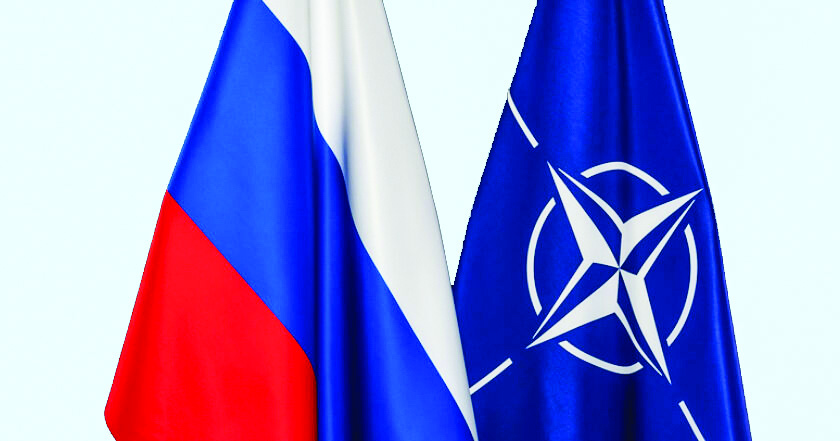The more NATO focus is on Russia, the less the attention paid by that alliance to China and its activities.
New Delhi: The Sino-Wahhabi lobby has been working overtime after the November 6 victory of Donald J. Trump in the US Presidential polls. The effort is to ensure an intensification of the ongoing conflict between NATO and the Russian Federation that had been simmering since 2014 but which began raging after the February 24, 2024 entry of the Russian armed forces into the eastern parts of Ukraine that a decade ago declared their independence from Kiev, and which subsequently were absorbed into the Russian Federation. The more NATO focus is on Russia, the less the attention paid by that alliance to China and its activities, including infiltration of military recruitment centres of the US in particular in order to recruit those who have family residing in the PRC, and are therefore vulnerable to pressure by the CCP. The calculation within the War Analysis Groups in the CCP had been that the permission given by the White House for Ukraine to use US ATAC missiles deep into Russia would trigger a disproportionate response from Russia. Instead, the Kremlin ordered the use of the hypersonic Oreshnik missile against a Ukrainian target, more as a warning to Joe Biden than to Volodymyr Zelenskyy.
The warning sent by Russia went unheeded by those operating in the name of the 46th President of the US, and a senior Russian army general was killed through the use of a remote controlled bomb in Moscow. Since the destruction of the Nord Stream 2 pipeline on September 26, 2022, it had been factored in by the Russian side that Ukraine under Zelenskyy was only a proxy for NATO, and in particular the US, where members of the immediate family of President Biden have had close social and financial links with several of the Russophobic Ukrainian oligarchs backing Zelenskyy in his anti-Russia crusade. “Algo warriors” of the Sino-Wahhabi lobby had long worked within online platforms at creating a distrust and hatred for Russia within the capitals of NATO member states. It was therefore not accidental that the threat from the CCP was downplayed, and Xi portrayed as a peacemaker rather than as a peace-breaker. That role was reserved for President Vladimir Putin. It is only recently that the weight of information collected by the intelligence services
As a consequence, the targets chosen for hostile attention included India, which has seen an effort at damaging the image of both the country as well as its elected leadership. Although the UAE, Kuwait, Oman and Saudi Arabia are ruled by moderates opposed to Wahhabism, reformists such as Crown Prince Mohammad bin Salman of Saudi Arabia were attacked by self-proclaimed independent media that followed the ruling establishment line without demur, indeed with zest. Such a slant has been visible in the type of coverage given to India. Another example is Syria, much of which has come under the control of an Al Qaeda affiliate which is committed not just to war against the democracies but against other sects in the great religion of Islam. Wahhabism is of course condoned, as is most recently demonstrated in Syria, where US diplomats have been playing court to an ultra-Wahhabi set of leaders grouped under the Hizbut Tahrir label. In contrast, Khomeinism, an offshoot from within a particular sect, is given short shrift, in line with ultra-Wahhabi impulses.
Will the next aggressive move by the US and the UK in particular be such that President Putin will no longer be able to give a relatively restrained response, but will deploy firepower of a magnitude that changes the nature of the Ukraine war into a direct faceoff between the Russian Federation and NATO? The Sino-Wahhabi lobby has been desperately working to ensure that incoming Cabinet picks such as Tulsi Gabbard, Mike Waltz, John Ratcliffe and Kash Patel not get confirmed, but the indications are that the Republicans in the Senate are aware of the game and will fall in line with the White House. What has made a difference is a change in tone where secret coverage to US lawmakers of the activities of the CCP are concerned. Given the closeness of the lobby to several key policymakers in the Biden Presidency, all except the most hardened of the Sino-Wahhabi infiltrators within the Biden administration are changing their briefings to represent a more sober and truthful picture of the CCP and its activities. The lobby is pinning its hopes for a rejection of confirmation on Senators Romney, McConnell and Collins, but they may be in for a disappointment. When the rubber hits the road, all three are likely to do what is right for US security, and there is zero doubt that the four Trump picks named above have long been opposed to the Sino-Wahhabi lobby.
Thus far, President Putin has disappointed the Sino-Wahhabi lobby by keeping his responses to provocative acts by Kiev to the sub-critical level, and the odds are that the lobby will fail to trigger a direct war between NATO and the Russian Federation before Trump takes the oath of office as the 47th President of the US on 20 January 2025. Meanwhile, efforts at provoking the Kremlin will continue. But not just Putin but even Kim Jong Un of North Korea appears to have understood the game being played by a supposed friend. He has once again resumed diplomatic ties with India, which under Prime Minister Narendra Modi has the potential to be a trusted interlocutor between Pyongyang and the democracies. It is a race against time, and the stakes are high. Nothing less than an intercontinental conflict.

